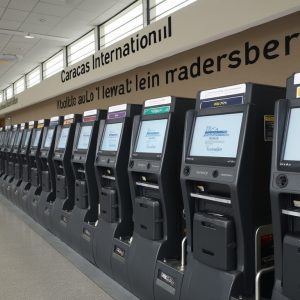”GRACE” IN THE NETIZEN WORLD
PART TWO
An Incident in New Zealand:
What it Portends for the Final Generation
“See to it that no one carries you off as spoil or makes you yourselves captive by his so-called philosophy and intellectualism and vain deceit (idle fancies and plain nonsense), following human tradition (men’s ideas of the material rather than the spiritual world), just crude notions following the rudimentary and elemental teachings of the universe and disregarding the teachings of Christ (the Messiah).”
Colossians 2:8 (Amplified)
This is my second writing sent to mom during my time in Singapore (2009-2010) and discovered by my sister after mom’s death. As I mentioned in the first missive, these old writings are treasured gems from the past. I offer them below in their original wording. When I want to add a parenthetical note, (I will insert these thoughts in the text using bold wording.)
I just returned from New Zealand a few days ago. What a beautiful, beautiful place. It is a country of 60 million sheep and only about four million inhabitants, one out of four of whom live in the largest city Auckland. (Apparently these days, New Zealand is a much safer place to live: while the world has seen excess mortality rates the last two years—not all of which can be blamed on the pandemic—The Economist says there were zero excess deaths among the elderly in New Zealand … “meaning it’s possible fewer people died there than would’ve had we never even heard of SARS-Cov-2.”)[1] New Zealand—especially the South Island—is known for majestic mountain vistas (Peter Jackson directed and filmed The Lord of the Rings movies there), beautiful but rugged seascapes, friendly people, one of the world’s most incredible botanical gardens, a fantastic national museum, the All Blacks (a champion rugby team complete with pre-match Maori war chant), and British-style pubs on virtually every corner.
(I can’t resist inserting a paragraph here. The visit described in this missive was my second work-related trip to New Zealand. During my first visit, three colleagues and I hired a driver and van for an “area familiarization tour” of Wellington and its surroundings. To our surprise, the driver played the role of an elf in The Lord of the Rings movies. Unbeknownst to me, one of the others in our group prided himself in Ring movie-related facts and trivia. So, it turned out to be a Lord of the Rings tour, complete with visits to locations where scenes from the movies were filmed, a drive by Peter Jackson’s house, and an inside tour of Jackson’s studio and grounds. It is impossible to over-estimate the value of Jackson’s movie franchise to the Kiwis: when you land at Wellington International Airport, there is a giant mural of Peter Jackson to greet you and the movie-construction sets of round-door houses of The Shire, where the fictional Hobbits lived, remains New Zealand’s number one tourist attraction).
During my last full day in Wellington, Mark L.—a senior official in New Zealand’s national police force—took time to drive me around the countryside near the city so I could shoot “rustic” photos for some artwork (I toted around a single-lens reflex camera; those were the days before built-in smartphone cameras). Mark’s wife Debbie, an elementary school teacher in Wellington, accompanied us on the trip. They have two children ages five and eight. Mark is an interesting and successful individual who spent several years working an ordinary police beat in the city before rising through the ranks.
(He told me a wonderful story about his parents). His dad was originally from London and had met his wife and Mark’s mother (originally from Wales) on the boat as they both fled to New Zealand decades ago in search of a better life.
Mark is a jogger, cycling enthusiast, works with kids, and a surfer. During the tour he showed me his favorite place, a bay next to the airport where several surfers were in their wetsuits, floating astride their boards while waiting for the next big wave.
Debbie was just as fascinating in her own right. She told me she had spent some time in the U.S., in northern California, where her father did some social work with Folsom prison inmates. Mark drove me by their house (Mark is a carpenter and a former home builder as well) and we stopped by a delightful little deli for a great lunch.
It was a wonderful day; I took lots of great pictures, learned a bunch about New Zealand from an on-the-ground perspective, and met two new friends with whom I really hope to stay in touch with for several years to come. (Alas, I have lost contact. Sigh.)
As we were passing through a small suburb on the outskirts of Wellington, I noticed a small Baptist church. I hadn’t seen all that many churches in New Zealand. I was both surprised and curious about this observation and asked both Mark and Debbie about church life in their country. Debbie explained that she was an Anglican (the church that succeeded the Church of England in all former British colonies). Mark became noticeably quiet. It was obvious that neither of them put much stock in the things of the spirit. They both agreed that New Zealand was becoming increasingly “secular” and that religion was on the wane in the country. Debbie followed with an observation that it was a pity that former President Bush had been captured by the religious right in America, implying that “fact” was the primary reason for Bush’s political fate and, perhaps, the current bundle of problems facing the U.S.
I’m sure she thought I would agree.
I observed that I was quite sure that the picture she described was the one portrayed by American and foreign media, but that there were many sincere people in our country who were alarmed at what they perceived as a decline in moral values and that view was not limited to a single political party or agenda.
That was the last mention of anything even remotely smacking of religion for the rest of our trip.
Why do I bring up this episode? Because what I observed in New Zealand that afternoon with Mark and Debbie—two of the most wonderful people I have ever met—illustrates one of the primary challenges that will confront the Benjamin Generation. Mark and Debbie were generous, delightful human beings and certainly not antagonistic to spiritual things. They live in a country where incredible physical beauty surrounds them. Nevertheless, neither one of them saw any need to include God in their (or their children’s) lives.
Why?
They were both mired in a spiritual malaise in their country that stems from a growing cultural secularism. A vibrant society born of the dreams and aspirations of immigrants has become a hollow shell. Unfortunately, this social emptiness is not limited to New Zealand alone but reflects a dynamic of “fallenness” that is becoming rampant throughout the western world. On a broad social scale this is the equivalent of what happens in a marriage when two individuals become totally self-absorbed and complacent in their relationship. The marriage loses intimacy, lacks passion, and the former intensity dwindles as the partners become content to go through the motions. The husband and wife may not be yelling and screaming at each other, they simply no longer care. In the same way, a secular disregard for the things of God is an insidious cancer that erodes the will and destiny of a people or country.
It is this sense of cultural malaise—not terrorist’s acts, future pandemics, collapsing stock markets, external foreign military threats, or violence-tinged religions—that will constitute the greatest spiritual challenge for the future remnant generation (in my view, the generation of the final age, specially equipped by God to reap the end-time harvest of souls). Modern man’s smug satisfaction in human solutions, combined (and perhaps linked) with a disinterest in serving a higher cause, will almost certainly be the prevailing future worldview confronting the final generation. We are witnessing the beginning stages of this phenomenon today, a direct consequence of the absence of integrity in our political, business, education and religious leaders. Integrity is, at root, a spiritual value in a world that has resigned itself to eschewing spiritual values.
In Wellington, walking near the parliament complex (the famous “beehive” building) later that afternoon, I noticed a couple churches—old, beautiful, and architecturally intriguing buildings—but structures devoid of young people, empty of purpose, and monuments to the culturally irrelevant. Creeping secularism, the official dogma of the educated elite in New Zealand, has strangled the life out of them.
Other forms of life, however, are flourishing. One block over from the city’s waterfront and the Duxton Hotel where I stayed was a thriving strip of bars, nudie clubs, restaurants, and pubs that magically come alive at nightfall. On more than one occasion, while walking back to the hotel, I was nearly trampled in the streets by small groups of youths that were foul mouthed and wobbling from drink.
Please understand me, I am neither prudish nor puritan in my approach to such things—I’ve been known myself to discuss the world’s problems over a beer (or pint). There is something far more disturbing at play here than our usual preoccupation with applying Christian labels to people based on such externalities.
A friend of mine sent me an editorial piece this week from The Wall Street Journal entitled “God Will Provide—Unless the Government Gets There First” by W. Bradford Wilcox, with some statistics that reinforces my point about the growing trend toward secularism in our own country. A new study from the Program on Public Values at Trinity College shows that the number of Americans claiming no religion is now at 15 percent of the population (up from 8 percent in 1990 and 2 percent in 1962). This trend—the result, in my view, of increasing secularism—is especially strong among people in the 21-45-year-old age group; only 25 percent now attend church services regularly in this group. Moreover, these studies show an inverse relationship between religious observances and welfare spending (i.e., as we become more of an entitlement-based society, people are less inclined to go to church).
Think about it.
How many of your friends place a high priority on consistently going to church? (A situation made worse in our present age by a lingering pandemic “hangover”: the former distancing requirements, lockdowns of church congregations, at-a-distance church services making it more convenient to stay home, and government restrictions on church gatherings). You can drive around Washington D.C. on Sunday mornings and find fields full of kids and adults participating in well-intentioned sports programs, all of whom, apparently, have no problem whatsoever missing church. Again, I contend it is this growing indifference toward the things of God (and trusting in the counsel of man more than seeking the will of God in prayer and in personal decision-making) that will shape the future world for true Christian believers.
(Wilcox’s data in 2009, pales in comparison to more recent statistics. Several months ago, I attended an alarming presentation by Dr. George Barna, perhaps the most respected Christian pollster these days: only six percent of American adults have a “biblical worldview”—that is, they actually practice a biblical lifestyle on a consistent basis. Yet, over 50 percent of the population claim they operate out of a biblical worldview. In U.S. evangelical churches, Barna’s research shows four out of five congregants lack a biblical worldview, as do only 19 percent of self-proclaimed “born again” believers. In addition, Barna’s research in 2021 yielded three conclusions: first, America’s dominant worldview is Syncretism [a disparate, irreconcilable collection of beliefs that people paste together to suit themselves and their lifestyles, based more on convenience than any particular dogma]; secondly, most opt for a God “who remains distant from people’s lives” and believe “the universal purpose of life is being happy and feeling good about themselves;” and, thirdly, Millennials are “substantially more likely” than previous generations to “reject biblical principles in favor of more worldly spiritual perspectives and practices, with a whopping 43 percent not believing in God or unsure of His existence.”) As Barna notes: “Frankly, the culture is impacting the Christian church and the Christian faith more than the Christian church or Christian faith are impacting the culture.”)[2]
We live in a world where masses of people are racing toward eternity without the slightest knowledge or understanding of God’s grace—steadily nudged in that direction by a secularist elite that controls political agendas, economic expectations, entertainment venues, the fate of governments, and information channels. Meanwhile, we believers cloister ourselves in social clubs of like-minded individuals, somehow remaining content in our moth-ridden church structures, sidelined with meaningless theological arguments, and all but abandoning the struggle for the cultural souls around us.
May God forgive us.
[1] David Wallace-Wells, “What a Single Metric Tells Us About the Pandemic,” The New York Intelligencer, Mar 26, 2022.
[2] Personal notes, Barna presentation “Personal Decision Making,” at Family Research Council seminar, Cornerstone Church (Leesburg, VA), Oct 12, 2021; Molly Carman and David Closson, “New Barna Research Reveals Extent of America’s Loss of Faith, Family Research Council, Jun 22, 2021.




